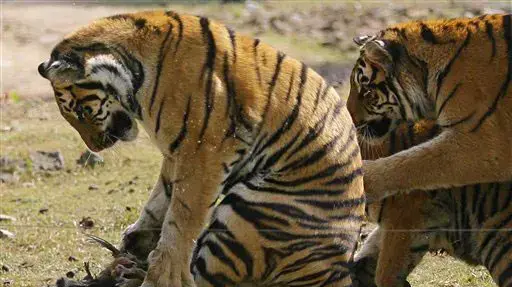- Business
This market rolls in billions every year - but costs us in health
The corona crisis has drawn public attention to the growing friction between humans and wildlife and the dangers inherent in it. How can trade in protected animals, which make billions of dollars every year around the world, be restricted, and what is being done about it in Israel?
Tags- Diseases
- hunting
Neta Nissim, Angle
Friday, 07 August 2020, 00:11Until recently, bat soup was considered a delicacy in China's bustling markets. But the corona virus has made it one of the most infamous wildlife in recent times, due to the claim that the source of the plague that rocked the world is in bats sold for food in the wet market in Wan province in China (later blamed on the Pangolins). Since then, there have been many initiatives in Asia to close wet markets, but it is not at all certain that this action will solve the problem of increasing friction between humans and wildlife.
"It is important to understand that there have always been zoonotic diseases (diseases transmitted through animals, wildlife or farm animals to humans), and there are many mechanisms that cause them to spread," says Dr. Miri Tzluk, an environmental ecological consultant. Rabies and rabies are diseases that have been transmitted and transmitted to humans from animals. In the last forty years there has been an increase in new diseases that have not been diagnosed or have not been found before in humans or at all. These diseases, such as coronary heart disease (COVID-19), are very dangerous because we have almost no knowledge about them and therefore dealing with them is more complicated. "
The American Center for Disease Control (CDC) found that about 75 percent of all new infectious diseases originate (not Including coronary heart disease) Zoonotic diseases, including Zika, malaria, dengue fever, West Nile fever, avian influenza, Ebola, SARS, MERS and many other diseases, cause 2.5 billion patients a year and about 2.7 million deaths a year worldwide.
More on Walla! NEWS
Not forces: This is how sport fishing destroys the sea
To the full article
High exposure to pathogens
Whether the bats or other animals were the source of the corona - or not - it is clear that there is a link between infectious diseases and the closer and more frequent friction between us and wildlife. "Wild animals carry a lot of pathogens (pathogens, NN) and bats can also carry severe viruses, such as SARS, MERS and Ebola," says Zlok. "Studies show that the bat has a particularly strong immune system, so the pathogens it carries do not affect "The problem is that when humans hunt the bat, sell it in the markets and mess with its blood and internal organs, their exposure to these pathogens is higher."
The wildlife trade not only harms us but is a significant factor in reducing the biodiversity of animal species. According to an article by Dr. Miri Tzluk and Prof. Uri Shines, recently published in the scientific journal "Ecology and the Environment", the human population is causing widespread extinction of plant and animal species and it is estimated that about one million species are currently endangered. The link between high biodiversity has been shown to reduce the risk of transmitting diseases between animals and humans.
"This phenomenon is called the 'dilution effect,'" Zlok explains. "The greater the biodiversity, the smaller the chance of diseases within the system. The more diverse the system, the more immune it is and so does the transition of pathogens from animals to a small person. Even if we think about it statistically it makes sense: not all animals transmit diseases to humans in the same way and not every species of animal has the same chance of transmitting disease to humans. Therefore, when there are more wild animals in the system, the chance of a particular species being a host species that infects the pathogen and passes it on to humans is smaller. "
However, in many places in the world there are ancient traditions of consuming wild animals for food, traditional medicine and even culture: Like ivory elephants, tiger bones, pangolin scales, animal skins and more.
More on Walla! NEWS
You'd be surprised, but insurance companies can save the world
To the full article
Sustainable wildlife trade
The more contact points there are between a natural area and a more developed area, whether it is an agricultural area or an urban area, the higher the chance that the disease will pass from wild animals, to live on a farm and from there to a person or directly to a person.In order to create a trade in wildlife that is sustainable for the species itself, the CITES International Convention was established in 1973. Almost all countries in the world are members of it and its goal is to ban international trade in endangered species of wildlife and plants, and to maintain strict monitoring mechanisms in the field. The agreement in question applies to the hunting, capture and possession of animals or their remains for any commercial purpose, from exploitation of wildlife as "pets" to capture for the purpose of creating a breeding nucleus, while States Parties must prosecute hunters and traders in their territory.
Despite the strict convention and efforts to enforce it, the illegal trade in wildlife, even those in danger of extinction, continues to exist on a huge scale. In 2016 the World Economic Forum (WEF) estimated the volume of trade at about $ 7 billion to $ 23 billion annually (a wide range, indicating primarily the difficulty of truly estimating how many animals, or parts of animals, are illegally sold and smuggled worldwide).
"Beyond the growing trade in wildlife, there are other mechanisms that are affected by humans and that increase the way epidemics are transmitted and spread," says Zlock. "One of the main reasons for this is the destruction of habitats and the creation of fragmentation between natural areas - a phenomenon called the 'marginal effect'. The more contact points between a natural area and a more developed area, whether agricultural or urban, the more likely the disease is from wildlife. To live on a farm and from there to a person or directly to a person is higher. "
"Destruction of natural habitats and their fragmentation also destroys the ecological balance within the system, thus enabling the spread of 'generalist' species, such that the range of habitats and the types of food to which they are accustomed is greater. These species are easier to move between natural and urban. To transmit the viruses that they carry, "adds Tzluk. "When the ecosystem experiences an imbalance, animals also experience stress and as with humans, stress affects the immune system and thus increases the risk of transmitting pathogens between the animals and themselves and between them and the environment."
More on Walla! NEWS
A by-product of the meat industry that we prefer to forget
To the full article
What is happening in Israel?
The consequences of the corona crisis are not yet entirely clear, but there is no doubt that our conduct will have to change and be adapted to the new routine. "It is important to understand that hunting and trade in wildlife is not only in China, but something that also exists in the United States, Europe and Israel," says Tzluk. "In Israel, truncation and destruction of natural habitats is very common, and there is a massive development of construction and infrastructure. However, a project of the Planning Administration, which promotes the establishment of an ecological corridor in the central area that should maintain connectivity and continuity between natural areas."
"We learn a lot from the corona in Israel and one of the key things is that we do not rely enough on science in decision-making processes and also there is not enough understanding of the importance of natural areas and wildlife for our survival. One of the things I hope will happen as a result is more humble "Natural values and we will understand that there are natural mechanisms above us, over which we have no complete control. Without changing the way we act, it will be difficult for us to cope with the changes that are taking place around us."
The article was prepared by "Angle - The News Agency of the Israeli Association of Ecology and Environmental Sciences"














